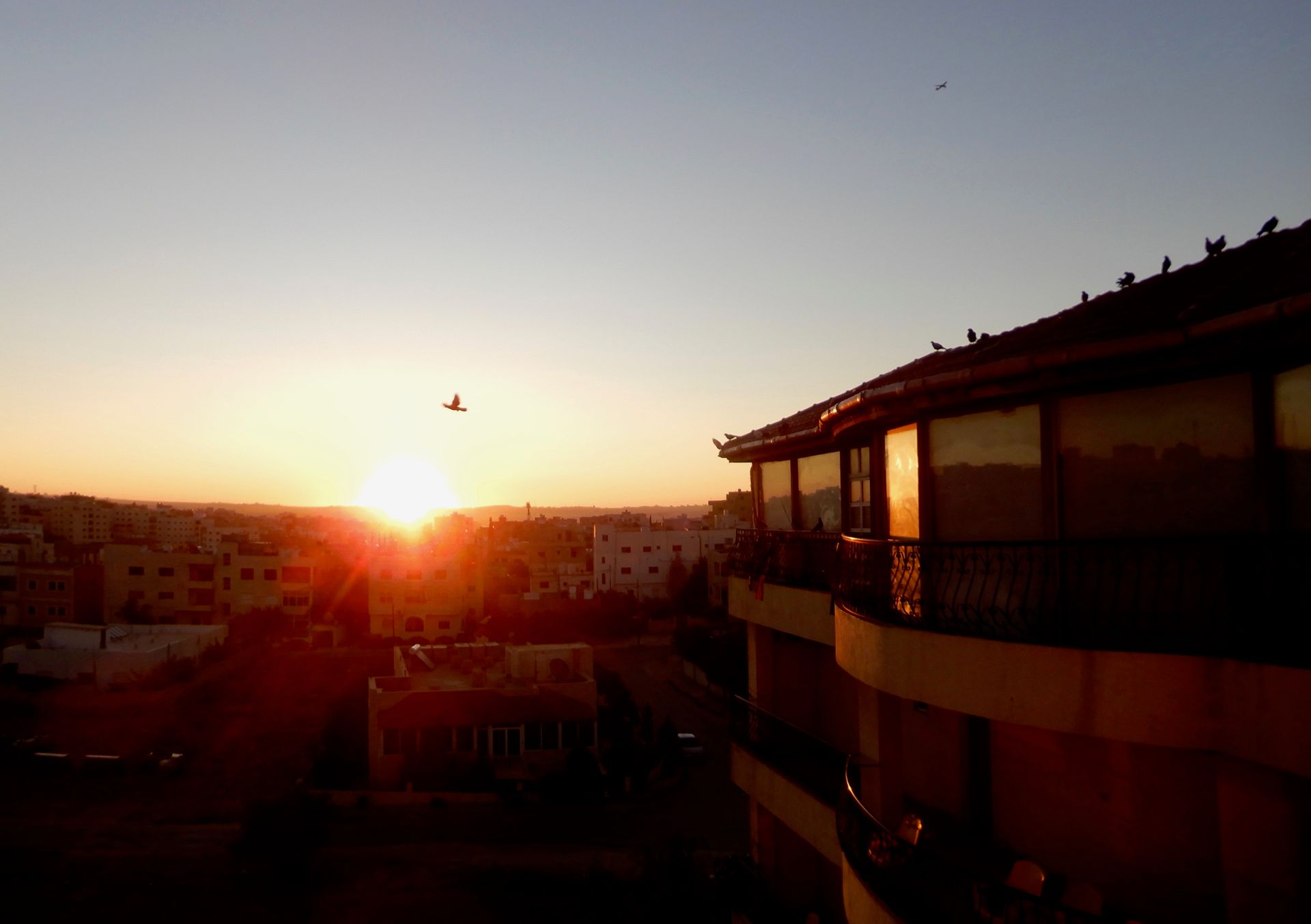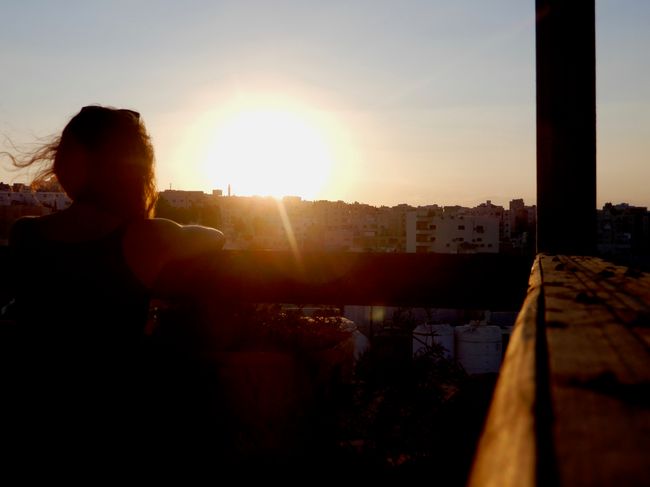Finally. Ramallah.
Publicados: 25.01.2020
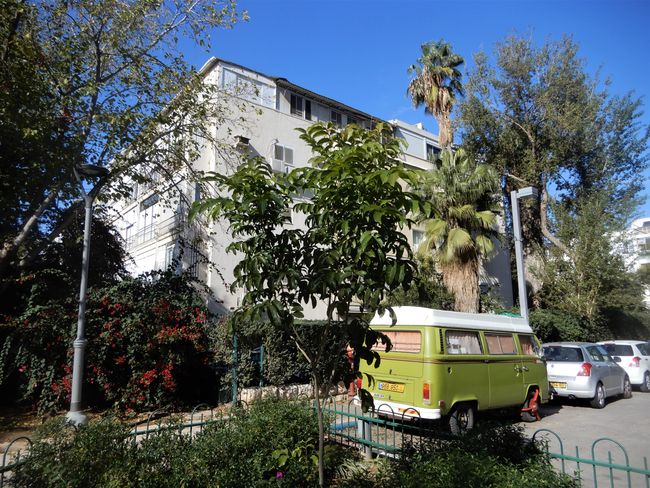
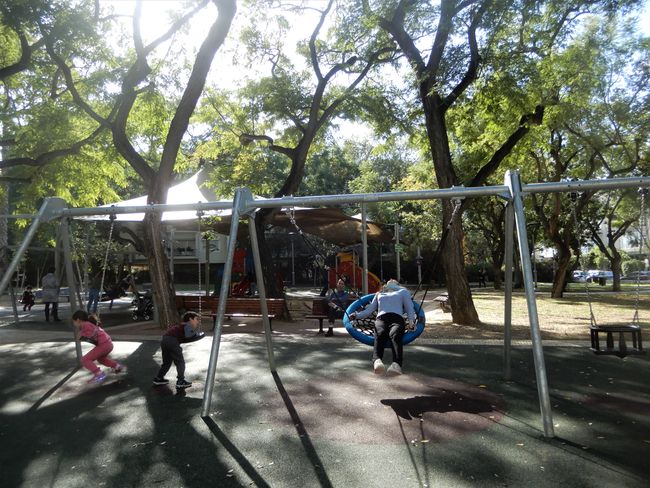
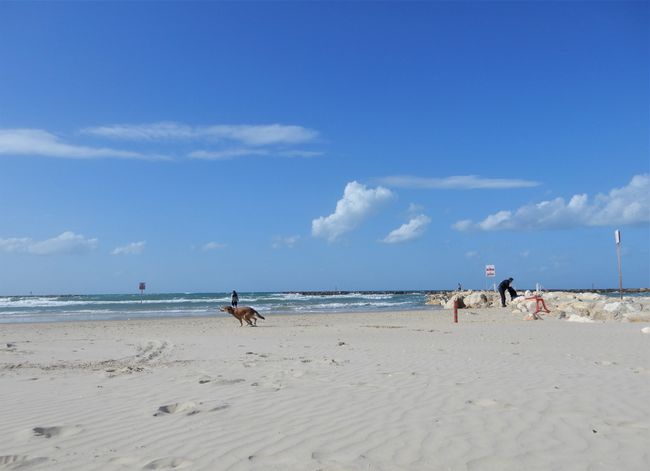
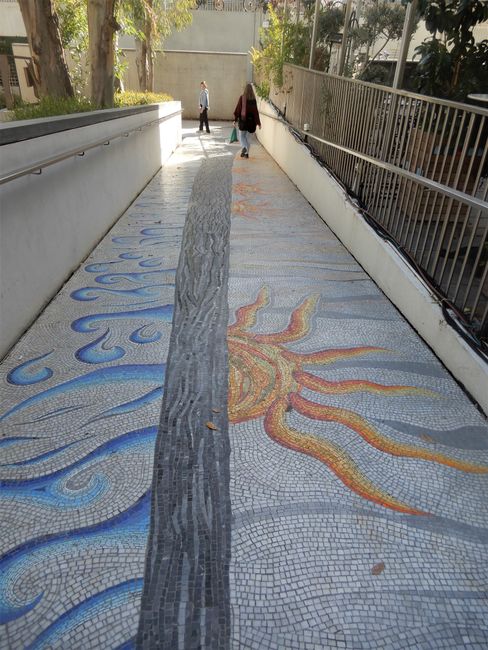
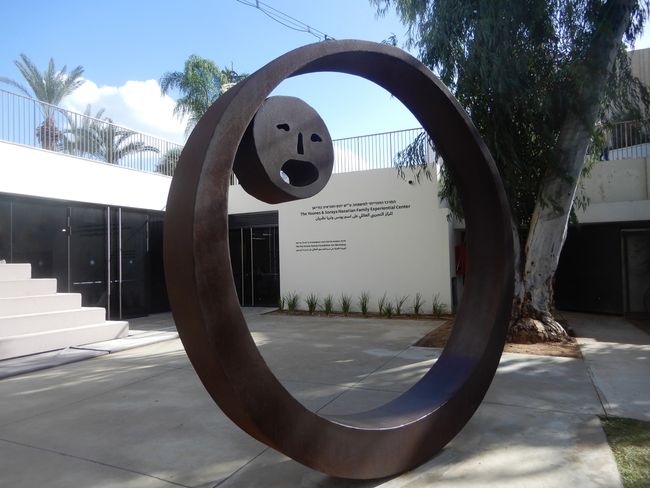
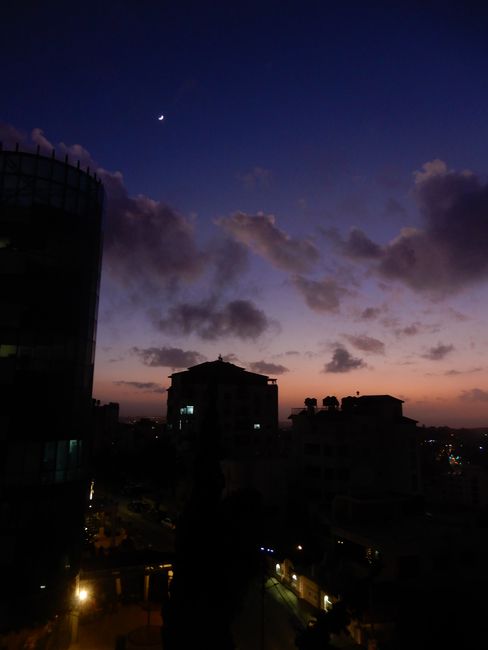
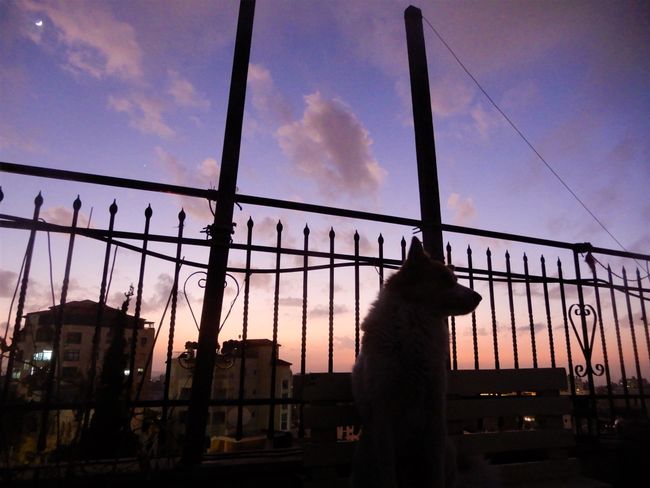
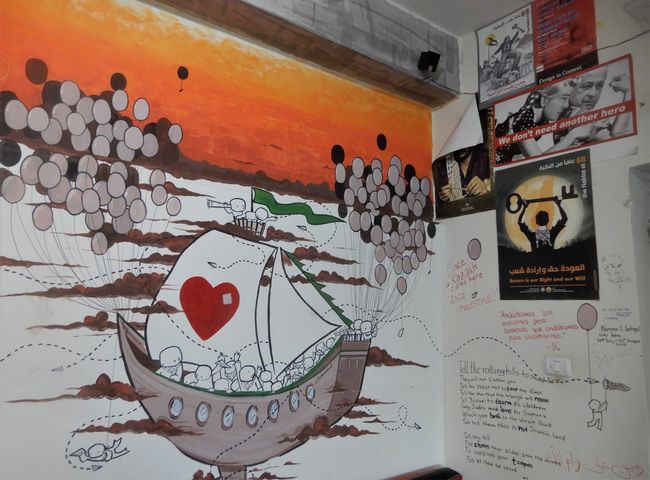
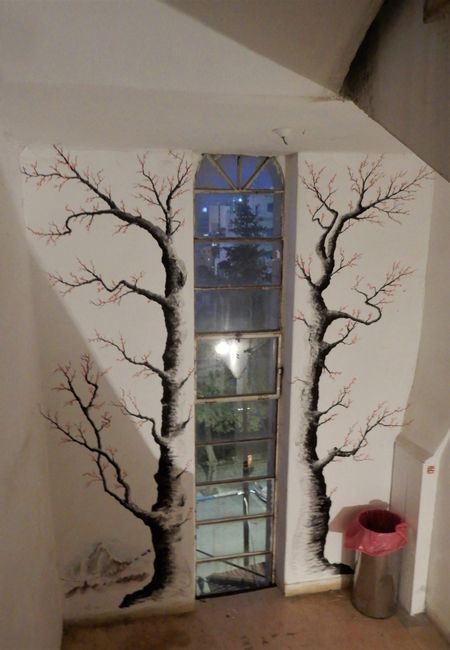
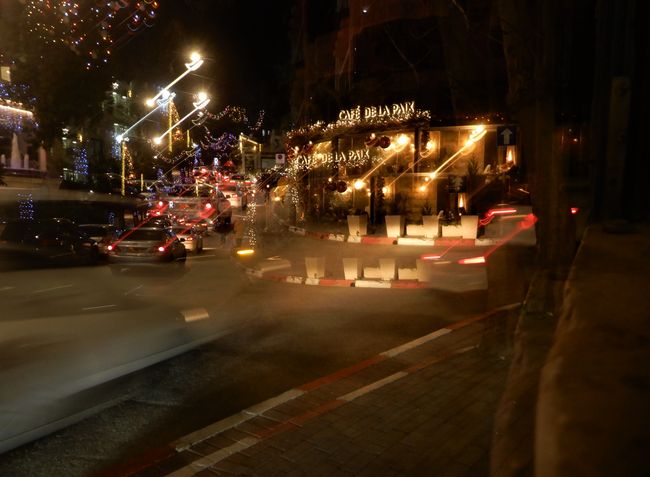
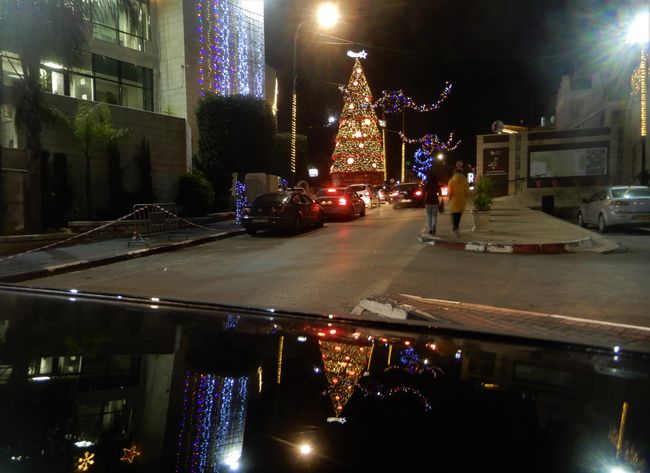
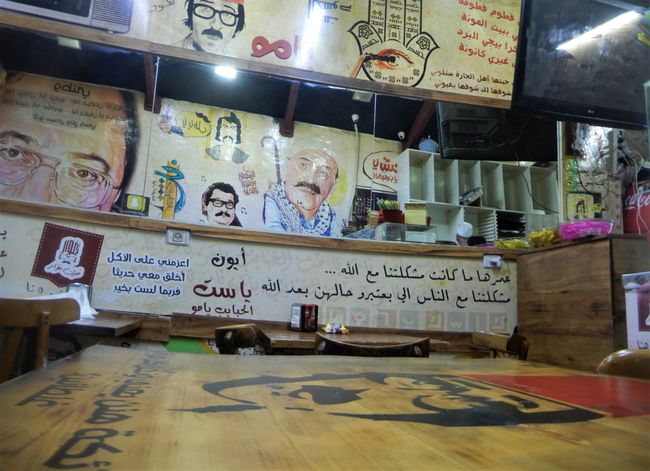
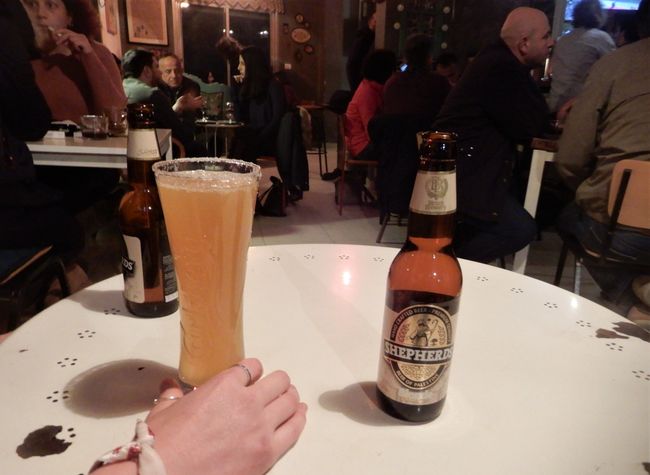
Monday, December 30
8 am. After the last night in the bunker, Sophia and I get some sesame rings for breakfast, then pack our things and leave the strange Gatet Community. However, we spend the morning in Tel Aviv. While Sophia's parents visit the museum, I walk to the beach with Hanni and Sophia. It's very windy today (which apparently happens often in Tel Aviv in winter), but also very beautiful. So, we soak up some sun, breathe in the salty beach air, and say goodbye to both the sea and Tel Aviv. We head back to Jerusalem.
Our paths then separate in Jerusalem. While Sophia's parents spend another night in Jerusalem, we instead make our way to Ramallah, West Bank. At first, we walk to the wrong bus stop, but they kindly tell us where the buses to the West Bank depart. It's different from yesterday in Tel Aviv, where we made a small mistake. Admittedly, we thoughtlessly asked an Israeli bus driver if there are buses to Ramallah from Tel Aviv. His reaction was a bewildered "Ramallah!? No!". Away from the pretty colorful tourist life here, where it's easy to forget all worries, in these small moments we are reminded of the conflict-laden country we are in. And for that, I am grateful. In the end, I am nothing more than a privileged spectator of the Israeli occupation and all the consequences that the people here are exposed to.
At the right bus stop, we join Palestinians in line for the bus to Ramallah, listening to their Arabic conversations that sound like music to my ears. I am already sure that I will feel comfortable in the West Bank. After getting settled in the tight seats with our huge backpacks, we set off and stop at various stops along the way, so the bus soon makes its way into the West Bank on the expressway, packed with people in the aisle. After about an hour, we are already there. Well, we are on the outskirts of Ramallah. The traffic here is similar to the rush hour in Amman, so we stand in congested traffic for another half an hour until we finally reach the final stop.
We strap on our big backpacks and set out to find our hostel. We were warned that Google Maps doesn't work well here, and now that's confirmed. It takes us some extra meters until we finally arrive at the hostel. But my initial feeling is strengthened. I feel very comfortable on the busy streets, between Arabic calls from vegetable vendors and bread stands, crowded sidewalks, honking cars, and Arabic advertisements on the buildings.
The "Hostel in Ramallah," recommended to us by Anas (more on him later), is located in an inconspicuous side street, and we have to call through the intercom until the door is opened. A very friendly receptionist welcomes us on the first floor and lets us enter the cute hotel lobby. The walls there are colorful, decorated by hostel guests with posters, and give us a homely feeling right away. The receptionist now shows us our bunk bed room and the rest of the hostel. There are more dormitories on the second floor and a wonderfully cozy room with a fireplace, a small bar, and an outdoor terrace on the third floor, where a cute white-golden dog greets us. From up here, we have a great view of all of Ramallah, as the evening sun sinks lower and lower. The receptionist tells us to make ourselves at home. He gives us the code at the door in case we leave the hostel and come back later: "The wall must fall!" If that isn't a contrast to our "1948" code from the Gatet Community in Jaffa. It feels so good to be here.
We set off again to visit a restaurant recommended by the receptionist. On the way there, two passersby call out "Welcome to Palestine!" to us. In Amman, I don't even hear the "Welcome" calls in downtown anymore, but here it brings a smile to all of our faces. I really feel welcome in Palestine.
The restaurant recommended to us has apparently just opened its kitchen, and we are the first guests to sit in the freshly cleaned small space. Again, a similar scene to the hostel: colorful walls and extremely friendly staff. We don't get exactly what we ordered, but the mana'eesh, a kind of Arabic pizza, tastes delicious and quickly fills our stomachs. Then we get a free dessert: knafeh. Mmhhh.
Our next destination, a community center in the city center, is unfortunately closed, so on recommendation, we make our way to the garage instead. A super cute alternative bar, as we later find out, where young and old mix, and where we order a Palestinian beer. Mmhhh.
We head back to the hostel. And behold: the code works. We go up to the top floor again, where we meet Chris and Diesel. Chris is the hostel owner and friend of Anas. Anas is a Palestinian friend of Gina, a fellow student who studies with us in Amman, who is from Ramallah. Diesel is Chris' dog, whom we saw earlier. Diesel, because Chris found him as a puppy abandoned on a junkyard. Chris now lights the fireplace for us and tells us a little about the organic farm he operates near Ramallah with his brother, where Anas has also helped out. Of course, he can also tell us more about the occupation here. Born a Palestinian in Jerusalem, he has been living in Ramallah for several years now, running this hostel, and facing the consequences of the occupation every day. However, he looks at it all very objectively. Eventually, everything will change here, he says. We live in constant change. And no power will rule forever. However, he cannot say when that will happen.
Yes. It feels really good to be here.
Responder
